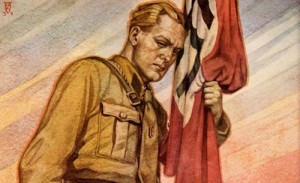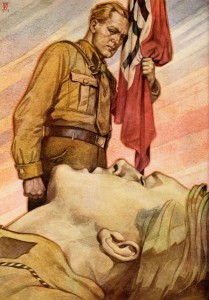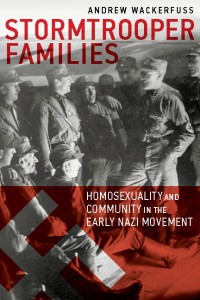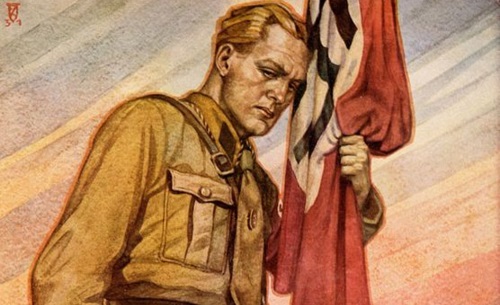Book – Stormtrooper Families
 In the new book Stormtrooper Families (Homosexuality and Community in the Early Nazi Movement), ” author Andrew Wackerfuss, PhD, quashes the myth of the “pink swastika” – the idea put forth by hysterically conservative pundits such as Scott Lively, Bryon Fischer, Pat Robertson and their ilk that “thuggish” homosexuals caused the rise of the Nazi Party, World War II, the Holocaust, and the general devastation of the world after 1945.
In the new book Stormtrooper Families (Homosexuality and Community in the Early Nazi Movement), ” author Andrew Wackerfuss, PhD, quashes the myth of the “pink swastika” – the idea put forth by hysterically conservative pundits such as Scott Lively, Bryon Fischer, Pat Robertson and their ilk that “thuggish” homosexuals caused the rise of the Nazi Party, World War II, the Holocaust, and the general devastation of the world after 1945.
 Stormtrooper Families, focused specifically on the men of the famously violent Nazi Sturmabteilung (aka “SA” or stormtroopers)**, reveals that life in the SA was far more bromance than romance. More homosocial than homosexual, the SA was a fiercely masculine network of social spaces in which stormroopers could live, eat, and sleep together in political and personal harmony.
Stormtrooper Families, focused specifically on the men of the famously violent Nazi Sturmabteilung (aka “SA” or stormtroopers)**, reveals that life in the SA was far more bromance than romance. More homosocial than homosexual, the SA was a fiercely masculine network of social spaces in which stormroopers could live, eat, and sleep together in political and personal harmony.
Based on extensive archival work, Stormtrooper Families combines stormtrooper personnel records, Nazi Party autobiographies, published and unpublished memoirs, personal letters, court records, and police-surveillance records to paint a picture of the stormtrooper movement as an organic product of its local community, its web of interpersonal relationships, and its intensely emotional internal struggles.
Extensive analysis of Nazi-era media across the political spectrum shows how the public debate over homosexuality proved just as important to political outcomes as did the actual presence of homosexuals in fascist and antifascist politics.
 As children in the late-imperial period, the stormtroopers witnessed the first German debates over homosexuality and political life. As young adults, they verbally and physically battled over these definitions, bringing conflicts over homosexuality and masculinity into the center of Weimar Germany’s most important political debates.
As children in the late-imperial period, the stormtroopers witnessed the first German debates over homosexuality and political life. As young adults, they verbally and physically battled over these definitions, bringing conflicts over homosexuality and masculinity into the center of Weimar Germany’s most important political debates.
Stormtrooper Families chronicles the stormtroopers’ personal, political, and sexual struggles to explain not only how individual gay men existed within the Nazi movement but also how the public meaning of homosexuality affected fascist and antifascist politics–a public controversy still alive today.
Harrington Park Press

